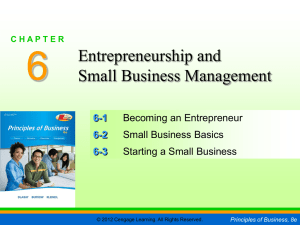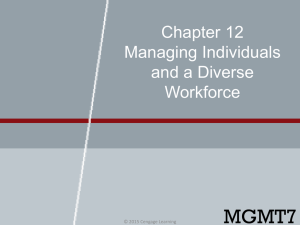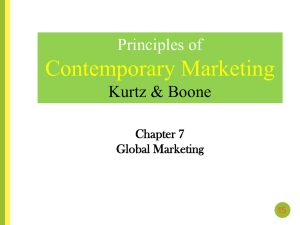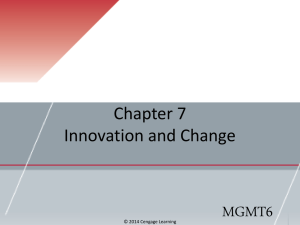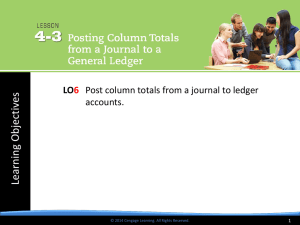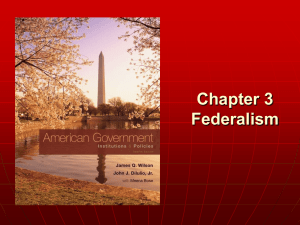Chapter 3 Notes - Eudora Schools
advertisement
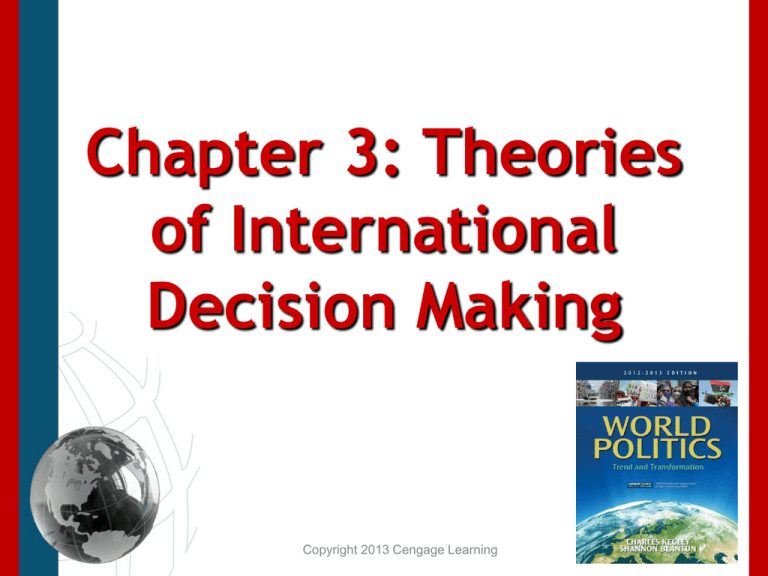
Chapter 3: Theories of International Decision Making Copyright 2013 Cengage Learning Decisions and actions in the international arena can be understood, predicted, and manipulated only insofar as the factors influencing the decision can be identified and isolated. Arnold Wolfers, political scientist Copyright 2013 Cengage Learning Choice and Consequence Copyright 2013 Cengage Learning Foreign Policy Making in International Affairs Transnational actors and decision processes Influences on making foreign policy decisions • Global or external conditions • Internal characteristics, including the nature of leadership Copyright 2013 Cengage Learning Transnational Actors Countries International organizations Multinational corporations Nongovernmental organizations Indigenous nationalities Terrorist networks Individuals Copyright 2013 Cengage Learning 5 International Decision Making and a “Funnel of Causality” Copyright 2013 Cengage Learning 6 International Decision Making and a “Funnel of Causality” Copyright 2013 Cengage Learning Three Models of Decision Making by Transnational Actors Rational Choice Bureaucratic politics Political psychology of leaders and leadership Copyright 2013 Cengage Learning Decision Making as Rational Choice Problem recognition and definition Goal selection Identification of alternatives Choice Copyright 2013 Cengage Learning “How Are Foreign Policy Decisions Reached?” Copyright 2013 Cengage Learning Impediments to Rational Choice Bounded rationality Cognitive dissonance Game theory Two-level games Externalities Overloaded policy agenda Prospect theory Copyright 2013 Cengage Learning Road-Trip Diplomacy Copyright 2013 Cengage Learning Foreign Policy Decision Making in Theory and Practice Copyright 2013 Cengage Learning Bureaucratic Efficiency and Rationality Assign different tasks to different people Multiple advocacy Copyright 2013 Cengage Learning The Limits of Bureaucratic Organization Bureaucracy Bureaucratic politics model Policy networks Caucuses SOPs Groupthink Copyright 2013 Cengage Learning Collective Decision Making Copyright 2013 Cengage Learning The Leverage and Impact of Leaders “There is probably no history, only biography….” Ralph Waldo Emerson Copyright 2013 Cengage Learning Leaders as Movers of World History History-making individuals model Bush Doctrine Roles Instrumental rationality Copyright 2013 Cengage Learning Constraints on Individual Leadership Law History Circumstance Zeitgeist Political efficacy Copyright 2013 Cengage Learning The Major Factors Affecting Foreign Policy Decision and International Relations: Influences at Three Levels Copyright 2013 Cengage Learning 20 Controversy: Do Leaders Make a Difference? Copyright 2013 Cengage Learning The Domestic Determinants of Foreign Policy Decisions • • States’ attributes Military capabilities Economic conditions Type of government Constitutional democracy Autocratic rule Diversionary theory of war Copyright 2013 Cengage Learning The Burden of Foreign Policy Choice for Global Leadership Copyright 2013 Cengage Learning Global Influence on Foreign Policy Military alliances International trade Global distribution of power • Polarity Geostrategic position • Geopolitics Copyright 2013 Cengage Learning Geographic Influences on Foreign Policy Copyright 2013 Cengage Learning Questions for Critical Thinking 1. Did Kennedy and Nixon choose courses of action that reflected who they were as individuals? Would any president in their respective eras have made similar choices? 2. How would rational choice theorists understand the behavior of Nixon? Of Kennedy? What are limitations of the rational choice approach for explaining their policy decisions? 3. What are some other factors, domestic or international, that could have affected Kennedy and Nixon’s decisions regarding their respective military engagements, beyond zeitgiest? Copyright 2013 Cengage Learning 26 Questions for Critical Thinking 4. What are the strengths and weaknesses of the history-making individuals model? Who qualifies as a history-making individual? 5. What factors explain why bureaucracies do not always produce the best options? 6. In what ways does the individual level of analysis affect foreign policy making? 7. How does public opinion in the U.S. affect current foreign policy? 8. What are some contemporary examples of the importance of geopolitics? Copyright 2013 Cengage Learning 27 Web Links The Cuban Missile Crisis Freedom, Democracy, Peace, Power, Democide, and War Freedom House The Presidents: PBS’s The American Experience Copyright 2013 Cengage Learning 28

